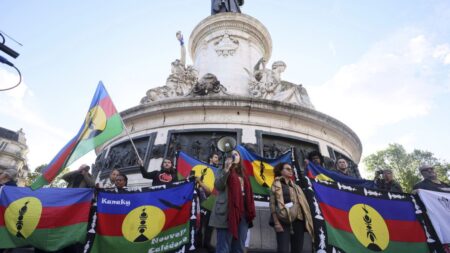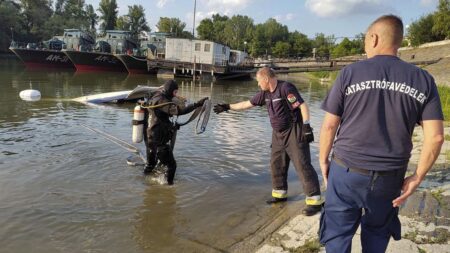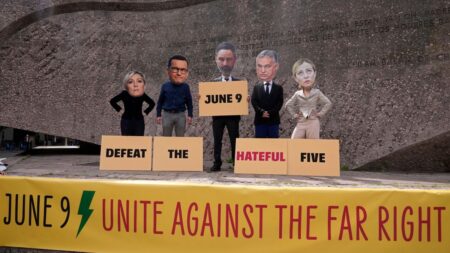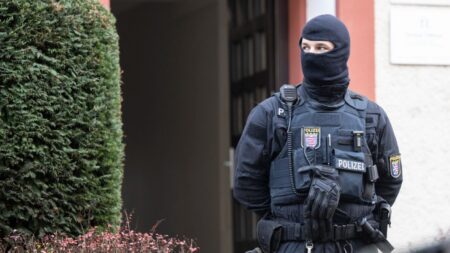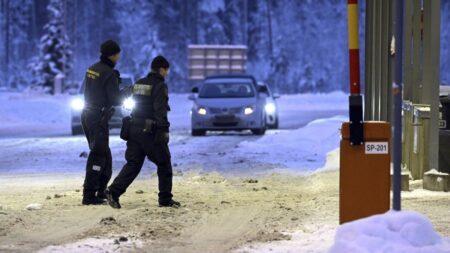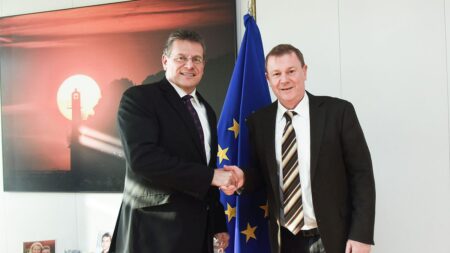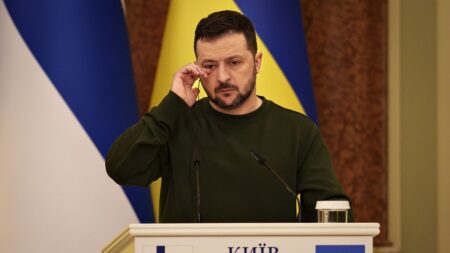These include protecting the rights of minorities and the right of a state to self-determination.
The European Free Alliance’s goal for the European elections in June 2024 is to ensure that minority rights are respected in the European Union and also the right to self-determination.
These are some of the main demands of its manifesto, which it presented on Friday after a two-day assembly in Brussels, Belgium.
The event was attended by its two main candidates or spitzenkandidaten, Maylis Rosberg and Raül Romeva, who were presented last October.
The party has called for the need for a European Commissioner to defend the rights of minorities.
“I consider national minorities to be one of the basic things in the European Union,” said Rosberg, who belongs to the Danish minority in Germany. He added that they are “the diversity of the EU”.
He calls for “protection and measures on how to develop their rights”. His party’s manifesto also calls for reform so that the European Committee of the Regions can “influence and amend” European legislation.
At the moment this European institution has only a consultative role.
The other main candidate or spitzenkandidat is former Catalan MEP Raül Romeva, who was sentenced to 12 years in prison for his participation in the Catalan referendum in 2017. Romeva was imprisoned for nearly three years and was subsequently pardoned, but is politically disqualified until 2030.
The pro-independence leader’s candidacy is mainly symbolic.
“It is basically a way of sending a message,” the Catalan politician explained. Romeva considers that the European Union has “important deficits in terms of representativeness, not only of representativeness in terms of nation but also of languages, of minorities, of options.”
This is not the first time that the EFA has had a leading candidate who has been condemned for the events related to the Catalan referendum. In the 2019 European elections, it fielded Oriol Junqueras, who at the time was imprisoned.
The leading candidate or spitzenkandidat is the person that each European party nominates as a possible president of the European Commission. After the European elections, the presidents and prime ministers of the EU countries must choose the next leader of the EU executive.
In 2014, Jean-Claude Juncker succeeded, after participating in an election campaign for the post. And in 2019 it was the then almost unknown Ursula von der Leyen who was chosen.
In these upcoming elections, Von der Leyen is standing for the European People’s Party.
She will run against, among others, the Social Democrat candidate and current European Commissioner for Social Rights Nicolas Schmit.
The European Free Alliance party is one of the least represented parties in the European Parliament, with a total of 10 MEPs. Most of them sit in the European Parliament in coalition with the Greens. The three members of the Flemish nationalist party sit with the far-right CRE group.
Read the full article here



